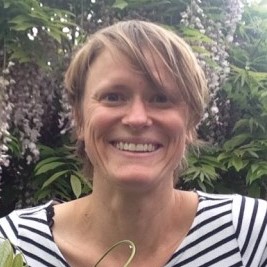What is the relationship between inequality and environmental degradation?
Faculty: Arts
Subject: Geography
Year / Level: 3
Theme(s): Climate Justice and Social Science
Description
This course is informed by two central dilemmas of our time. First, we live in a moment of profound ecological change. Second, the causes and consequences of these changes are also profoundly uneven. Across race, class, gender and other forms of difference, what we call “environmental problems” AND “solutions” benefit and burden some more than others. What these two core issues mean is that ecological problems are always more than ecological – ecological systems are entangled with social, political and economic systems. Our challenge (and it is ours!) is to restructure our political, social and economic systems to operate within ecological limits and to address inequalities and injustices, to move to something like environmental justice.
This context compels a whole host of big questions that we need to ask of ourselves and each other: What is the relationship between inequality and environmental degradation? What kind of restructuring or change is needed to advance environmental justice? Who decides? And how can we manifest such change in a society that appears to be driving off the edge of a cliff? Addressing these questions is not clear-cut or easy, and there certainly is not one right answer nor a silver bullet. A major goal of this course is to push each of us (including the instructors) to be more historical, geographical and analytical in our understandings of the socioecological challenges we face. Common refrains about how we are to “save the environment” always come with baggage (e.g. who is “we” and whose environments, exactly?). They have deep histories and hidden assumptions about causes and solutions, justice and inequality, politics and social change, which we will uncover in this course and wrestle with as a group.
Finally, this course is informed by one other dilemma, this one wholly personal. Many of us - as breathing, eating, thinking humans - are trying to figure out where to spend our precious time, where to direct our limited energies towards change, struggling to avoid a spiral into despair and nihilism. While there are no promises – none of us hold “the” answer – I hope this class will be a space for finding some even fleeting ground to stand on: “We are stuck with the problem of living despite economic and ecological ruination” (Anna Tsing 2015:19).
My own “fleeting ground” is weaved together by community. And I want to acknowledge a community of political ecology and environmental justice academics who have shaped and refined this course, including Kara Shaw, Rosemary Collard, James Rowe, Juanita Sundberg, and Rafi Arefin.
LEARNING OUTCOMES
At the end of this course you should be able to:
- Demonstrate awareness and understanding of the environmental injustice and racism on a variety of scales and jurisdictions,
- Synthesize across a range of learning materials (lectures, readings, multimedia) and evidence to compare, contrast and effectively communicate different approaches and debates within environmental justice,
- Understand some of the dominant assumptions, structures and institutions that shape contemporary environmental injustices and responses to these challenges,
- Communicate a compelling, analytical and empirically sound analysis of an environmental justice struggle or alternative orally and in the written form;
EXPLORE
Check SSC to see if the course is currently offered and if you meet pre-requisites etc.
SYLLABUS
Read a copy of the course syllabus to see reading lists, assignments, grading, and more.
"I aim to better understand complex, political and urgent problems like climate change."

